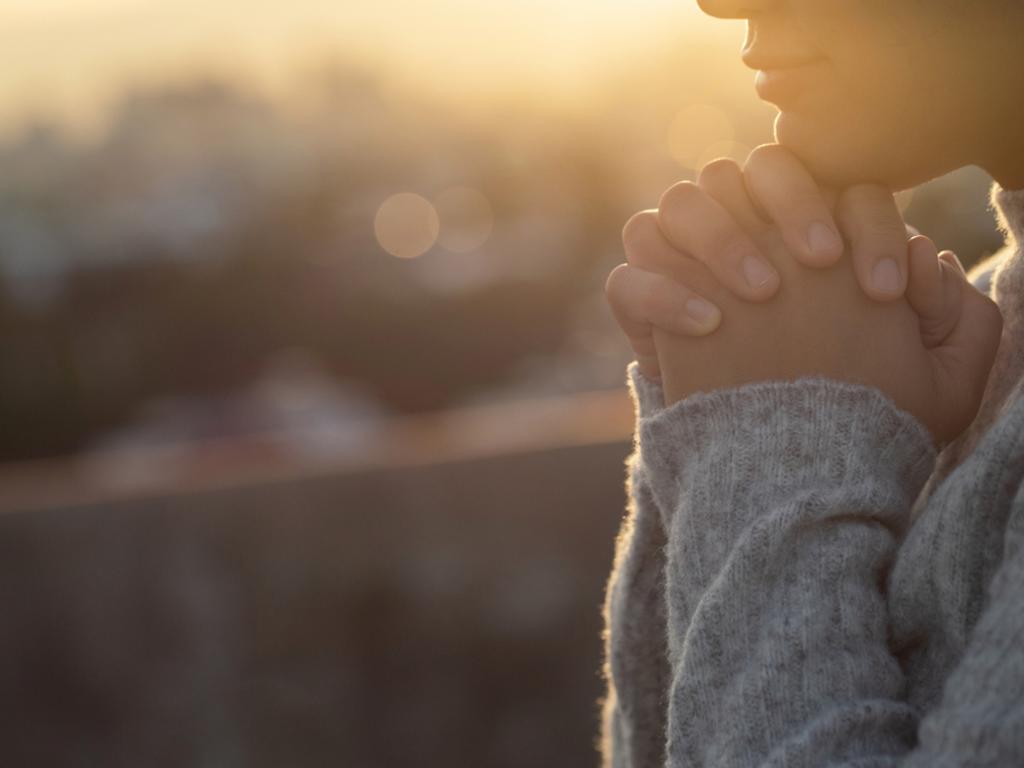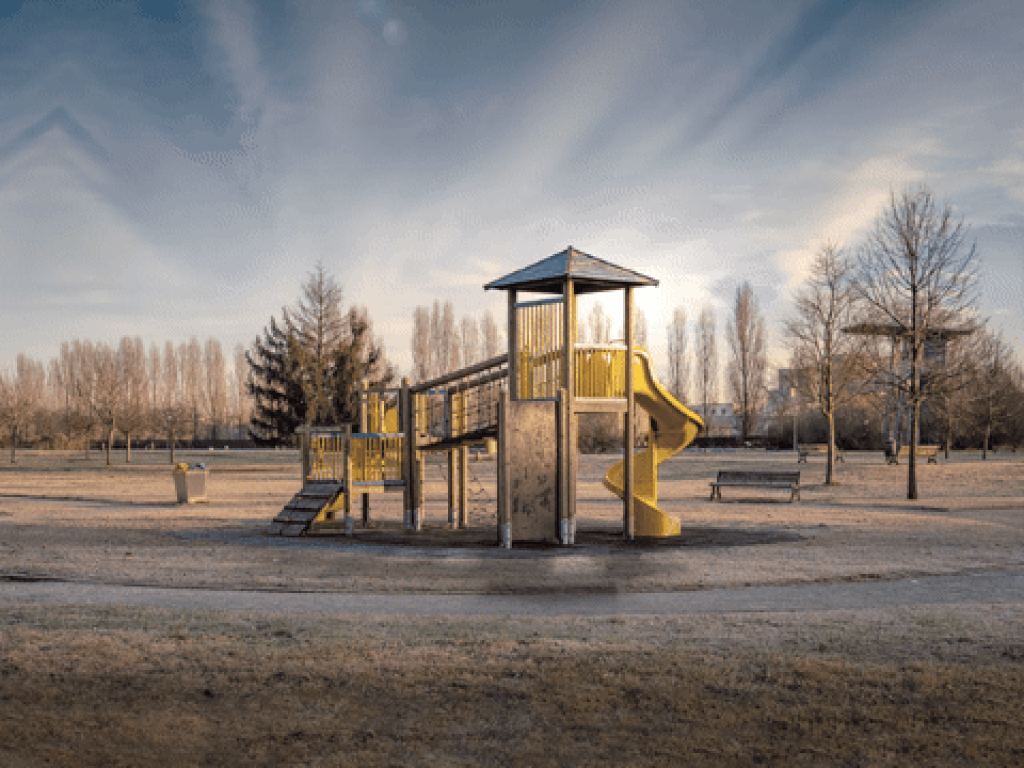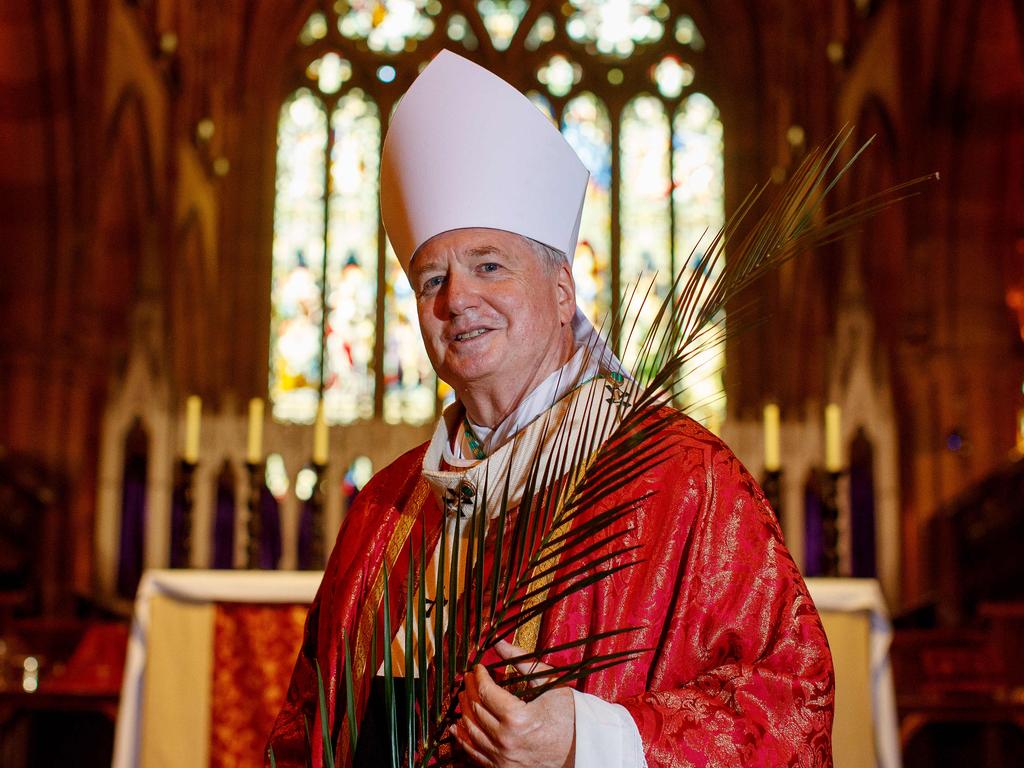How ‘Dark Spirituality’ can light the way for troubled youth
The rise in anxiety, depression and loneliness among young people stems from a lack of meaningful spiritual challenges in our culture. I believe there is a startling solution.

For this Easter oration I am going to confine myself to addressing just one question. But as this question contains a paradox, I will need your utmost attention. This is because a paradox is a statement that appears contradictory or absurd but on closer examination reveals a profound truth.
So here is the question: why are young people experiencing record levels of loneliness, anxiety and depression, as the health, wealth and life expectancy of Australians increases? Or, to put it another way, why is it that when Australians are healthier, wealthier and live longer than ever before, young people in this country are paradoxically experiencing increasing mental health problems?
In 2024, the Australian Institute of Health and Welfare reported that nearly one in five (18.3 per cent) Australians aged 16 to 24 experienced a mental disorder in the past year.
Critics have suggested different reasons for this paradoxical state of affairs: first, the lengthy lockdowns that occurred during the Covid epidemic; second, the technological revolution of the past 20 years – recent studies have found that adolescents spend, on average, 5½ hours a day looking at screens; third, the precarious and short-term nature of the capitalist gig economy – many of you will go on to university but may still worry that, even with a degree, you will struggle to find secure and permanent employment; and last, the psychological stress that arises when much of the media promotes the threat of imminent environmental collapse and maintains that we have reached a so-called tipping point.

Although these four factors do have some bearing on the situation, I am going to argue that the decline in mental health among young people is primarily a problem of culture.
What do I mean when I use the term “culture”?
In 1952, anthropologists identified 152 definitions of culture. So how might we define something so elusive as Western culture today?
When teaching sociology and criminology at Melbourne University, I define culture as the customs, norms, rules and behaviours we take for granted that help us to make sense of the world. Like breathing, culture is so natural we don’t notice it.
So what are some of these norms and values that we take for granted in the West today?
I believe that the highest values in contemporary Western culture can be traced to three influential figures: Socrates, Martin Luther and Karl Marx. This might seem like an unlikely combination of historical influences but stay with me.

First, by using rational inquiry to question fundamental values like justice, truth, and love, Socrates prioritised reason over instincts and emotion. He was appalled that the great playwrights of his time drew inspiration from instincts rather than reason. This rationalist approach set the West on its path to separate the mind from the body.
Second, Luther’s distrust of large church institutions and the priesthood shifted the weight of religious responsibility on to the individual, encapsulated in his rallying cry “sola fide” – through faith alone. The emphasis on “alone” is the foundation of modern individualism, moving away from collective responsibility.
Last, Marx famously upturned spiritual understandings of existence in favour of a material world view based on power and class struggles, reducing religion to an “opiate of the people” that would be unnecessary when perfect equality was achieved.
The ideas put forward by these three figures – rationalism, individualism, and materialism – have shaped a Western culture that prioritises power, scientific materialism and individual freedom, and neglects the spiritual and communal aspects of life. Some of you might be thinking, what’s wrong with individual responsibility and scientific materialism? Haven’t they led to progress?
Since the Age of Enlightenment, the West has been part of a 500-year experiment, where while inventing the wonders of the modern world, from air travel to penicillin, we have at the same time created a culture that attempts to live without a spiritual nature. We are one of the only cultures or societies that has attempted to do this.
So how does all this relate to the increase in anxiety, depression and loneliness among young people in Australia? The Swiss psychologist Carl Jung perhaps put it best when he said, “the Gods have become diseases”, meaning that in the West the rise in mental health problems is a direct result of not acknowledging our inherent religious and spiritual nature. Jung argued it is not possible to expunge or extract spirituality from human existence without profound consequences. While we need material things, such as food, air and water, our lives derive meaning from the spiritual – without it, we wither, and our behaviour becomes sick.
But what in fact is spirituality?

Like the term culture, spirituality is also difficult to define, especially as it often relates to subjective spiritual states that have been marginalised in our current materialistic culture.
But having said this, in my estimation, there are currently two dominant forms of spirituality recognisable in Western culture today, Wellness Spirituality and Nature Spirituality.
Wellness Spirituality focuses on personal growth and inner peace through practices like mindfulness and New Age self-optimisation, encouraging individuals to treat wellness as a self-managed task, much like a fitness regimen. Think of a Fitbit that you wear around your wrist. This material electronic device calculates if you have had a good sleep, how many steps you have walked in a day, and ultimately places responsibility for wellbeing entirely on the individual, framing failure as a personal shortcoming – you have not worked hard enough!
In contrast, Nature Spirituality idealises a harmonious connection with the natural world, romanticising it as a refuge from human suffering brought on by civilisation. The 1960s’ return-to-nature counterculture epitomised this movement, but ultimately led to disengagement from the mainstream community without offering any serious alternative.
Therefore, I believe that Wellness Spirituality and Nature Spirituality do not offer a meaningful counterpoint to contemporary Western culture. They are either too individualistic, rationalistic or materialistic.
So, what is the way forward?
There have been two key moments in my life that forced me to reflect on the spiritual dimensions of human existence, particularly the aspects that are often overlooked in our culture today.
The first was climbing Mount Sinai during a visit to Egypt in my early 20s, where Moses is said to have received the Ten Commandments from God – something that my rational Western worldview found hard to believe. Yet, as I reached the summit at sunrise, after an exhausting all-night ascent up a rocky path, awe displaced disbelief. The silence that surrounded me, the warm breeze and the dazzling desert starlight informed me that I was in a sacred place as I climbed the final giant steps – 3700 in all – that were carved into the rock by a monk as penance. And to feel the sheer size of Mount Sinai towering above the flat desert landscape, how could I possibly see myself as a mere individual tourist in an exotic setting? I was a Son of God going up into the black heavens to have the Word revealed to me. I was surprised I felt this way. It seemed that without being consciously aware of it, I had just participated in a significant collective ritual connected to my Judeo-Christian heritage.

The second spiritual experience came in a much more mundane setting. Twenty-four hours before my philosophy essay was due, I worked relentlessly throughout the night, driven to the edge of my capabilities. Time seemed to disappear as I became absorbed in every sentence, working intently to make sense of many disparate ideas and themes. When the essay finally came together at dawn, a strange sense of wellbeing washed over me. Despite the exhaustion, I felt something deeply spiritual, as if I had transcended all my material concerns in that long sleepless night.
What are the common characteristics of these two experiences? They both involve stepping outside of everyday linear time and into darkness, a lack of food and sleep, mental or physical exertion, and a feeling that I was doing something transformative and significant.
Much like many foundational religious figures in the West, from Moses to Jesus Christ, my spiritual experiences arose when I stepped outside my comfort zone and was transformed – rather as base metals are transformed only when they experience intense pressure.
And it is not just religious figures who seek uncomfortable spiritual transformation; this is also true of prophets, great artists, and political dissidents. Think of philosophers such as Nietzsche and Kierkegaard, artists such as Van Gogh and Kurt Cobain, and Alexei Navalny, the Russian opposition leader who lost his life standing up to Putin.
As we approach Easter, it is worth noting that all these disparate figures I have mentioned share one striking similarity with Jesus: they faced extreme trials that led to the creation of something powerful and unique, blazing with spiritual intensity. Rather than focusing on personal wellbeing or escaping into nature, they sought to serve humanity. In a Western culture that worships longevity, it’s significant that neither Jesus nor the prophets, artists, or dissidents lived long lives.
To return to the paradoxical question with which we began, I suggest that if longevity, health, wealth, wellness and nature spirituality are paradoxically exasperating mental health problems among the young in Australia, there needs to be room for a third and more challenging countercultural type of spirituality, that I call “Dark Spirituality”.
Now DARK is an acronym that stands for difficult, ambiguous, revelatory, and kinetic. As St Paul once said, we see through a glass darkly on earth, and true spiritual awakening comes from recognising this.
To best understand Dark Spirituality, we can reflect on the upcoming Easter ritual.
First, the “D” of Dark Spirituality stands for difficulty. When life challenges you, burn brightly without concern for tomorrow. Do not shy away from difficult situations or the darkness that is best represented by Good Friday, when Jesus suffered for the sake of others and did not prioritise his individual power and material wellbeing.
Second, do not try to avoid the “a” in Dark Spirituality, ambiguity – this is necessary for all spiritual transformation. Despite what religious fundamentalists may think, certainty is spiritual suicide. Jesus was not free from ambiguity and doubt in the days before he died – this is what makes him both human and spiritual. Think of his cry on the cross: “My God, my God, why have you abandoned me?”
Third, do not follow contemporary Western culture and dismiss the “r” in Dark Spirituality, namely revelatory moments when they come to you, as being mere coincidences or mental malfunctions. They are meaningful in a way that your rational mind cannot understand. Jesus’s crucifixion itself is one such revelation – a paradox where death leads to life, and suffering becomes a source of redemption. Living in a culture that values rationality as the highest value, it is easy to ignore such paradoxical moments, but as we shall see today, these moments contain profound truths.
Lastly, do not disassociate from your community and friends, take part in the “k” in Dark Spirituality, kinetic engagement with the wider world. Like a moth that is still in darkness and springs to life only when the light turns on, human beings run on kinetic energy that is activated by external stimuli. For all of us introverts out there, this is perhaps the hardest thing to accept. When I was asked to speak in front of all of you, there was a part of me that wanted to run in the opposite direction. And yet, here I am. My physical body is just a conduit for a larger spiritual message that needs to be shared, despite my personal discomfort. Jesus’s own life exemplified this principle – his ministry was one of deep engagement with others, reaching out and embracing the suffering that came with it.
And now, we can finally properly answer the paradoxical question from which we began: the rise in anxiety, depression and loneliness among young people stems from a lack of meaningful spiritual challenges in our culture. Instead, contemporary Western culture contributes to the growing mental health crisis by prioritising comfort, longevity, rationality, individual power and material wealth.
I believe that Dark Spirituality – difficult, ambiguous, revelatory, and kinetic – offers a startling solution to this predicament, one that invites us not to shy away from sleepless nights and difficult trials, to dance on the edge of rationality, and to seek purpose beyond individual material comfort. Jesus’s challenging question, “What shall it profit a man if he gains the whole world but loses his soul?” shows us the danger of a solely individualistic materialistic worldview.
Therefore, it’s time we embrace this Dark Spirituality – a pathway to fulfilment and resilience that properly addresses the mental health challenges in Australia and fills the current spiritual void in our culture.
This is an edited extract from Dr Adrian Rosenfeldt’s Easter Oration to Melbourne Grammar School at St Paul’s Anglican Cathedral, Melbourne. Dr Rosenfeldt is a lecturer and tutor at Melbourne University and La Trobe University. He is the author of The God Debaters: New Atheist Identity-Making and the Religious Self in the New Millennium.





To join the conversation, please log in. Don't have an account? Register
Join the conversation, you are commenting as Logout